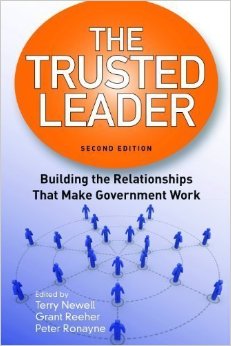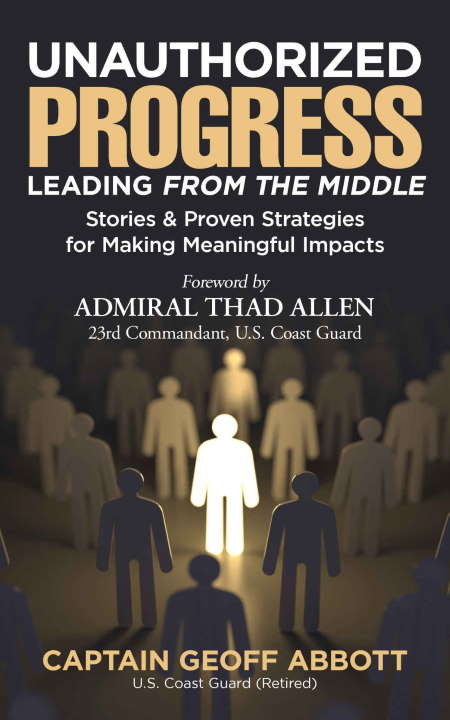Building the Relationships That Make Government Work
The following text is excerpted from the Introduction and Chapter 1 of The Trusted Leader: Building the Relationships That Make Government Work, edited by Terry Newell, Grant Reeher, and Peter Ronayne. Reprinted by GovLeaders.org with permission.
 The Trusted Leader addresses the central role played by career civil service leaders in building trust in themselves and their organizations. Our thesis is that trust matters and that it can be created. Our focus is on the development of trust through building effective relationships among career civil service leaders, their employees, people in other organizations in the executive branch, the legislature, and the citizenry.
The Trusted Leader addresses the central role played by career civil service leaders in building trust in themselves and their organizations. Our thesis is that trust matters and that it can be created. Our focus is on the development of trust through building effective relationships among career civil service leaders, their employees, people in other organizations in the executive branch, the legislature, and the citizenry.
Most efforts to improve government have focused on macro-level changes. Efforts as diverse as the Government Performance and Results Act (GPRA), the creation of chief financial officers, chief information officers, and chief human capital officers, performance management and pay banding, outsourcing, and frequent reorganizations all have had a common goal: to alter the performance of agencies so as to meet public purposes and foster positive public perceptions. The argument we make is that comparable emphasis on micro-level change efforts to build shared values, effective relationships, and therefore enhanced trust has been lacking.
At best, the designers of macro-level changes have taken for granted the presence of shared values, sound relationships, and trust—they are assumed to exist. At worst, they have been ignored or viewed as the “touchy-feely” side of governing that requires neither attention nor action. Building shared values, effective relationships, and trust are the “hard stuff” and can neither be assumed nor ignored in fostering high performance in government.
Governing is a social act, and effective governance therefore requires social competence. Career leaders in government who can build relationships that produce trust have met a necessary, if not sufficient, condition for leading democracy.
Values-Based Leadership for a Democratic Society
Values-based leadership matters because we are in a knowledge economy, especially in government. In a knowledge economy, success comes to those with the best ideas. Survival as a nation depends on thinking not only better but faster than those who would do us harm. How do we get the best thinking from not just our employees but citizens in general? It has to be freely given. We cannot compel knowledge contributions. People are more likely to share their creative thinking when they see it is in service to what they value. Values-based leadership releases this energy of innovation.
Values-based leadership in government is both essential and possible. It can be studied, understood, and learned. . . . It builds trust, fosters productive relationships within and outside agencies and is essential to democratic governance. Values-based leaders—and organizations—are made, not born. They result when government executives see themselves in service to citizens. And service to citizens is what being a civil servant means, after all. It requires, among all else we have discussed, a large portion of humility.
©2008 CQ Press. Reprinted with permission.








